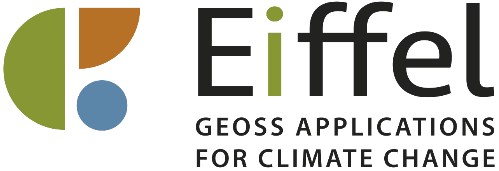The EIFFEL project had a distinguished presence, in the EuroGEO Workshop 2023 held in Bolzano Italy 2-3/10/2023, as a Green Deal "ambassador". More specifically, Pilot 4: Sustainable Urban Development was powerfully showcased at the session entitled “Building the Green Deal Data Space in a way that contributes to GEO” and the Opening Session with respect to national GEO activities.
Ιn particular our Pilot was presented by Evangelos Gerasopoulos (NOA/IERSD) during the opening Session of EuroGEO 2023 as a prime example of extrovert action by the (Greek) national coordination mechanism- the Greek GEO Office, bringing closer to EuroGEO the National Statistics Agency and engineers from the buildings’ energy domain. Moreover, Orestis Speyer (NOA/IERSD) presented the links of all EIFFEL pilots with the Green Deal in the relevant session, explored their inclusion in the Green Deal Data Space and advocated for the scaling up of the EIFFEL language model methodology in the GEO and the EU data spaces.
The EIFFEL presence attracted the audience’s interest reaching more than 120 members of the EuroGEO audience with on-site presence for the opening session and more than 40 for the Green Deal Data Space session.
The overall feedback was positive and strong interest was raised regarding the EIFFEL language model methodology and potential link with other initiatives.
Futhermore, our partner M. Haris Ali from IHE Delft Institute presented to almost 60 participants (Hydrologists, Data Scientists, Earth Observation experties and generally to the remote sensing and geospatial community), an e-poster specially focused on EIFFEL Pilot 1: Water and Land-Use Management.
More particularly, three global rainfall datasets were evaluated for simulating hydrological processes in the lowland catchment using distributed hydrological model. The study highlighted the potential of these global rainfall datasets for utilization in research related to formulation and testing of adaptation strategies to address water crises. The research was conducted using the hydrological model developed for Pilot 1.
Find the e-poster here




